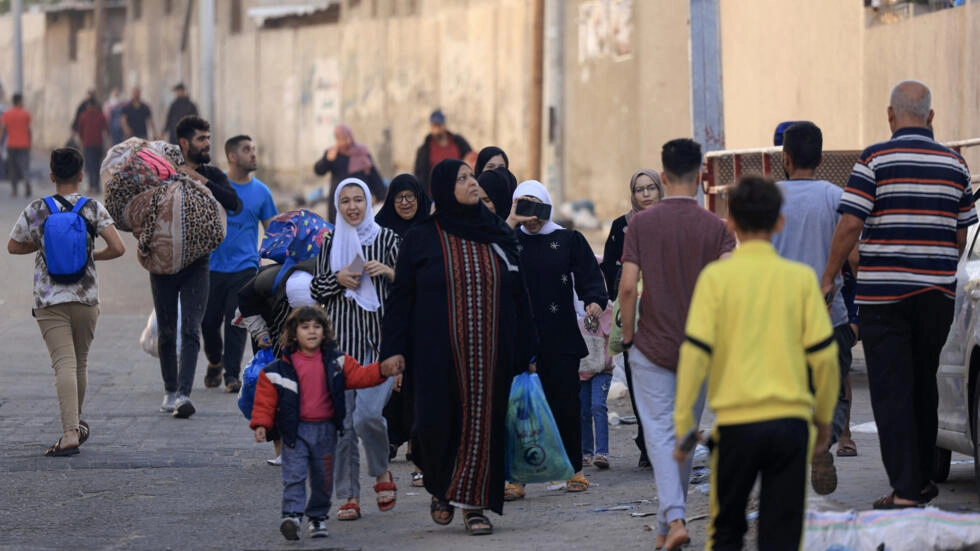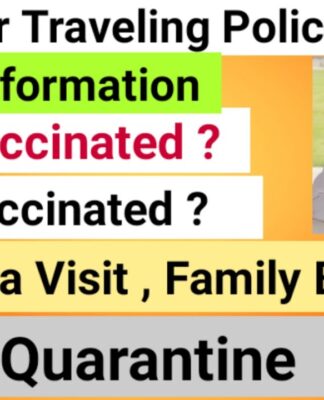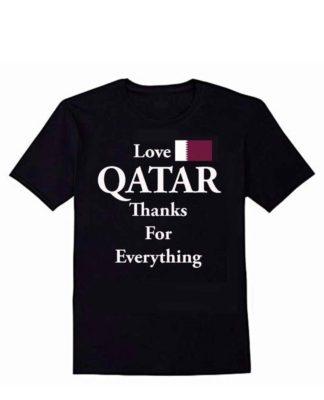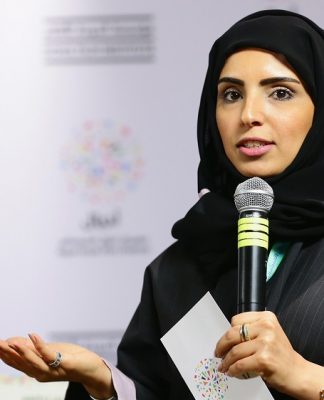Back to homepage / Middle East
EXPLAINER
Experts say Hamas and Israel are breaking international law, but what does that mean?
Since the latest explosion of violence began on October 7, both Israel and Hamas have been accused of breaking international law. As the terms “genocide”, “war crimes” and “crimes against humanity” are used to describe the deadly acts carried out by both sides, FRANCE 24 takes a look at what these terms mean.
Issued on: 21/10/2023 – 12:42
7 min
Palestinians carrying their belongings flee to safer areas in Gaza City after Israeli air strikes, on October 13, 2023.
Palestinians carrying their belongings flee to safer areas in Gaza City after Israeli air strikes, on October 13, 2023. © Mahmud Hams, AFP
By:
Lara BULLENS
Follow
It has been more than two weeks since the war between Hamas and Israel started, and the fog of war is showing no signs of thinning.
Since the fighting began on October 7, more than 1,400 Israelis and 4,000 Palestinians have been killed. Almost half of Gaza’s population has been displaced, according to the UN, and more than 200 people are still being held hostage by Hamas.
Amid the relentless violence, calls to respect the rules of war have been made repeatedly by world leaders and international organisations alike.
On October 10, the UN Commission of Inquiry said it was “collecting and preserving evidence of war crimes committed by all sides”. That same day, US President Joe Biden called Hamas’s attack on Israel an act of “terrorism”, claiming it “brought to the surface painful memories and the scars left by millennia of anti-Semitism and genocide of the Jewish people”.
Three days later, Palestinian ambassador to the UN Riyad Mansour appealed for the organisation to do more to prevent Israel from carrying out a “crime against humanity”.
And most recently on October 18, hundreds of pro-Palestinian protesters gathered outside the headquarters of the International Criminal Court (ICC) in the Hague demanding action against what they call genocide against Palestinians.
Here is a look at the terms used and how they may apply to the deadly acts carried out by Hamas and Israel in recent days.
War crimes
According to the UN, a war crime is an illegal action or set of actions that violate international humanitarian law, which is designed to protect civilians.
War crimes are always carried out intentionally and always take place in times of international or non-international armed conflict.
They can be divided into several categories. There are war crimes that target people who require protection such as the wounded or civilians, those that target humanitarian efforts or peacekeeping operations, and those that target property. War crimes can also be breaches of “prohibited methods or means of warfare”, which include wilful murder, mutilation, torture, taking hostages and intentional attacks on a civilian population.
Committing a war crime means breaking the rules of war, detailed in various treaties such as the Geneva Conventions adopted between 1864 and 1949, the Hague Conventions of 1899 and 1907 and the Rome Statute of 1998.
The goal of the Geneva Conventions, for example, is to protect civilians who aren’t involved in fighting or who can no longer fight in an armed conflict. The first convention from 1864 was ratified by all major European powers at the time within three years, and international negotiations were first initiated by Red Cross founder Henri Dunant. Today, these conventions have been ratified by all UN member states.
“War is always inhumane,” says Marco Sassoli, professor of international law at the University of Geneva. “But if international humanitarian law is respected, it would be less inhumane.”
For Sassoli, the Hamas attack carried out during the Supernova music festival in the desert near the Gaza border “is a clear violation” of international law and a war crime.
“People may not be executed, taken hostage, and only military objectives like rocket launchers and command and control centres may be targeted,” he explains.
But the prosecution of crimes like these is a lengthy and laborious process. It takes years of thorough investigations and litigations, and decisions are often taken decades after a conflict ends.
In 2012 for example, the former president of Liberia Charles G. Taylor was sentenced to 50 years imprisonment for the atrocities he committed during the civil war in Sierra Leone in the 1990s.
The main body in charge of holding individuals accountable for war crimes is the International Criminal Court (ICC), created in 2002 through the Rome Statue.
Some cases are brought before specific tribunals created by the United Nations.
Methods used to investigate war crimes are the same used to examine any criminal activity: interviewing witnesses, reviewing footage or images and collecting evidence through analyses, autopsies or DNA testing.
What is often difficult to prove is the intention of a given leader, how much they knew and whether they are directly responsible for what happened.
“The problem with international justice is that it’s extremely slow,” says Johann Soufi, an international lawyer and former legal office chief at the UN agency for Palestinian refugees (UNRWA) who lived in Gaza for three years. “[But] the great advantage of international justice is that it’s extremely patient.”
Crimes against humanity
Unlike war crimes, crimes against humanity don’t have to take place in the context of an armed conflict and don’t need to have an overall specific intent. They also haven’t been codified in a dedicated treaty like the Geneva Conventions the way war crimes have, though UN efforts to do so are under way.
Still, crimes against humanity are considered fundamental breaches of international criminal law and “among the most serious crimes of concern”, according to the ICC.
A crime against humanity can be committed through several different acts including apartheid, enslavement or the forcible transfer of a population, and takes place in the context of a widespread and systematic attack against a civilian population.
They’re defined by their large-scale violence, whether in terms of population or geography, or by how methodically they’re carried out. And they tend to be planned or at least condoned by state authorities.
If the act is carried out randomly, accidentally or in isolation, it’s not considered a crime against humanity.
In what it says is a response to the Hamas attacks, Israel’s military has been levelling entire city blocks in Gaza and preparing for a ground invasion it says is coming soon. Israeli authorities warned the population of northern Gaza to evacuate to the south, a move considered “unacceptable under humanitarian law” by Sassoli.
“If Israeli authorities warn a house next door to, for instance, a command and control centre then this evacuation order is welcome,” he says. “But you cannot warn half of the Gaza Strip [to evacuate] … Forced displacement within an occupied territory cannot be justified in this case.”
It’s unclear when the term “crimes against humanity” first appeared, but human rights experts say it was used as early as the late 18th century, in the context of the slave trade and European colonialism.
Crimes against humanity have evolved over the years under international customary law and in international courts like the ICC, and many countries have integrated these crimes into their domestic law.
Like war crimes, crimes against humanity are generally prosecuted by the ICC, but perpetrators can also be tried in some national jurisdictions under the principle of universal jurisdiction.
Once again, achieving justice for victims of crimes against humanity is an arduous and daunting process. “War crimes and crimes against humanity are not committed by states and armed groups, but by individuals. So it is much more difficult to identify the individual responsible,” says Sassoli.
But it is not impossible. A landmark case judged in a special UN tribunal for the former Yugoslavia involved the conviction of Dusko Tadic, a former paramilitary involved in the attack on Prijedor during the Bosnian War. It was the first-ever trial for sexual violence against men, and Tadic was sentenced to 20 years in prison as a result.
Genocide
The term was coined in 1943 by Polish lawyer Raphael Lemkin, who witnessed the massacres carried out by the Nazis during the Holocaust and spent his life campaigning to have the word codified as an international crime. It mixes the Greek prefix “genos”, meaning race or family, and the Latin suffix “cide”, meaning killing.
Genocide was first recognised as a crime under international law in 1946 by the UN and was later codified in the Genocide Convention of 1948. Like crimes against humanity, it can be committed through various acts, including murder, serious bodily or mental harm and the forcible transfer of children.
But for those acts to be considered a genocide, they must be committed “with intent to destroy, in whole or in part, a national, ethnical, racial or religious group”. What took place during the Holocaust is considered a genocide against the Jewish people. The atrocities that took place in Rwanda and Armenia are also considered genocides.
Genocide can take place in the context of an armed conflict as well as in peacetime, though the latter is less common. Once again, intent is the most difficult element to prosecute and is what makes this crime so unique.
Although pro-Palestinian protesters across the globe have gathered under the banner “stop the genocide”, Sassoli is extremely wary of using the term to describe Israel’s strikes on Gaza.
“We shouldn’t throw around such a serious term,” he says.
In 2021, the ICC opened a formal probe into alleged war crimes in the occupied Palestinian territories during the 2014 Gaza conflict, a decision fiercely contested by Israel. Although Israel is not a member of the court’s 123 member states, the Palestinian territories and Palestinians are.
“In an ideal world, we would never need humanitarian law, because humanitarian law applies only to armed conflicts,” the professor says.
“And in a world governed by a rule of law, there wouldn’t be armed conflicts.”
















![Qatar Labor Law In 2020??? [UPDATES]](https://welcomeqatar.com/wp-content/uploads/2020/12/Qatar-Labor-Law-1-696x366-1-324x366.jpg)













